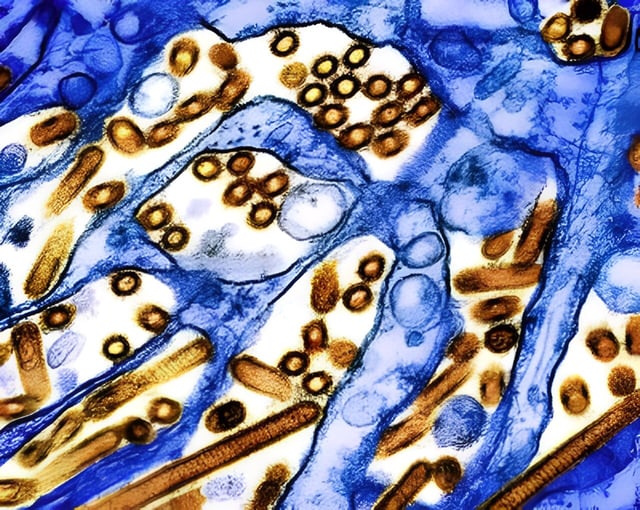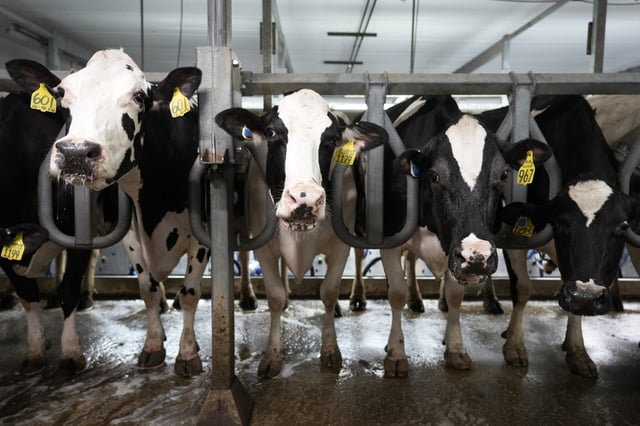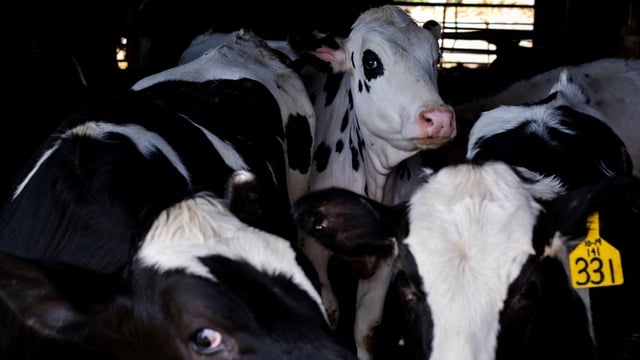Overview
- Ferrets exposed to the H5N1 strain from cows showed minimal airborne transmission in a controlled study.
- The virus can bind to both avian and human-type receptors, raising concerns about potential adaptation.
- Infected cows' milk production is affected due to mammary gland infections.
- The virus has been detected in dairy herds across 12 states, with some cattle showing no symptoms.
- Public health officials advise against consuming raw milk, but pasteurized milk remains safe.



